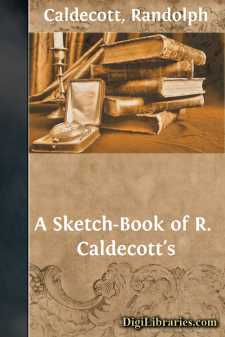Fiction
- Action & Adventure 180
- Biographical 14
- Christian 59
- Classics
- Coming of Age 5
- Contemporary Women 3
- Erotica 8
- Espionage/Intrigue 12
- Fairy Tales, Folklore & Mythology 236
- Family Life 169
- Fantasy 117
- Gay 1
- General 596
- Ghost 31
- Historical 808
- Horror 42
- Humorous 159
- Jewish 25
- Legal 4
- Medical 22
- Mystery & Detective 314
- Political 49
- Psychological 41
- Religious 64
- Romance 158
- Sagas 11
- Science Fiction 730
- Sea Stories 113
- Short Stories (single author) 537
- Sports 10
- Suspense 1
- Technological 8
- Thrillers 2
- Urban Life 31
- Visionary & Metaphysical 1
- War & Military 173
- Westerns 199
Classics Books
Sort by:
CHAPTER I THE FORTUNE TELLER On a day in May, not so long ago, Joan Vernon, coming out into the sunshine from her lodging in the Place de la Sorbonne, smiled a morning greeting to the statue of Auguste Comte, founder of Positivism. It would have puzzled her to explain what Positivism meant, or why it should be merely positive and not stoutly comparative or grandly superlative. As a teacher, therefore,...
more...
by:
Hall Caine
PREFACE. In my first novel, "The Shadow of a Crime," I tried to penetrate into the soul of a brave, unselfish, long-suffering man, and to lay bare the processes by which he raised himself to a great height of self-sacrifice. In this novel the aim has been to penetrate into the soul of a bad man, and to lay bare the processes by which he is tempted to his fall. To find a character that shall be...
more...
by:
Charles King
TWO ANNOUNCEMENTS The war with Spain was at an end, and so were the hopes and aspirations of many a warrior. For several reasons Colonel Ray of the ——th Kentucky was a disappointed man. One of the best soldiers doing duty with the volunteers, he had had some of the worst luck. Through long years of service in the regular cavalry he had borne the reputation of being a most energetic and valuable...
more...
GEORGE WHITEFIELD. There are some men in the pages of history, whose greatness no person of common sense thinks of disputing. They tower above the herd of mankind, like the Pyramids, the Parthenon, and the Colosseum, among buildings. Such men were Luther and Augustine, Gustavus Adolphus and George Washington, Columbus and Sir Isaac Newton. He who questions their greatness must be content to be thought...
more...
by:
W. Heimburg
A severe storm had been raging all day, and now, in the approaching twilight, seemed as if it would overleap all bounds in its wild confusion. Straight from the North Sea, over the broad Lüneburg heath, it came rushing along, and beat against the gray walls of the manor-house, shook the great elms in the garden, tossed about the bushes, and blew from the bare branches the last yellow leaf yet spared...
more...
CHAPTER I The Last Night of Carnival It was Carnival time in the ancient and once imperial, but now provincial and remote, city of Ravenna. It was Carnival time, and the very acme and high-tide of that season of mirth and revel. For the theory of Carnival observance is, that the life of it, unlike that of most other things and beings, is intensified with a constantly crescendo movement up to the last...
more...
CHAPTER I. DENAS PENELLES. “‘Tell me, my old friend, tell me why You sit and softly laugh by yourself.’ ‘It is because I am repeating to myself, Write! write Of the valiant strength, The calm, brave bearing Of the sons of the sea.’” ––French Rowing Song “And that is why I have written this book Of the things that live in your noble hearts. You are really the authors of it. I...
more...
On the northern shore of Sicily are still to be seen the magnificent remains of a castle, which formerly belonged to the noble house of Mazzini. It stands in the centre of a small bay, and upon a gentle acclivity, which, on one side, slopes towards the sea, and on the other rises into an eminence crowned by dark woods. The situation is admirably beautiful and picturesque, and the ruins have an air of...
more...
CHAPTER I Guardianship.The age of legal capability for the Roman woman was after the twelfth year, at which period she was permitted to make a will. However, she was by no means allowed to do so entirely on her own account, but only under supervision. This superintendence was vested in the father or, if he was dead, in a guardian; if the woman was married, the power belonged to the husband. The consent...
more...











